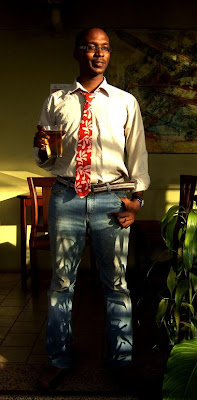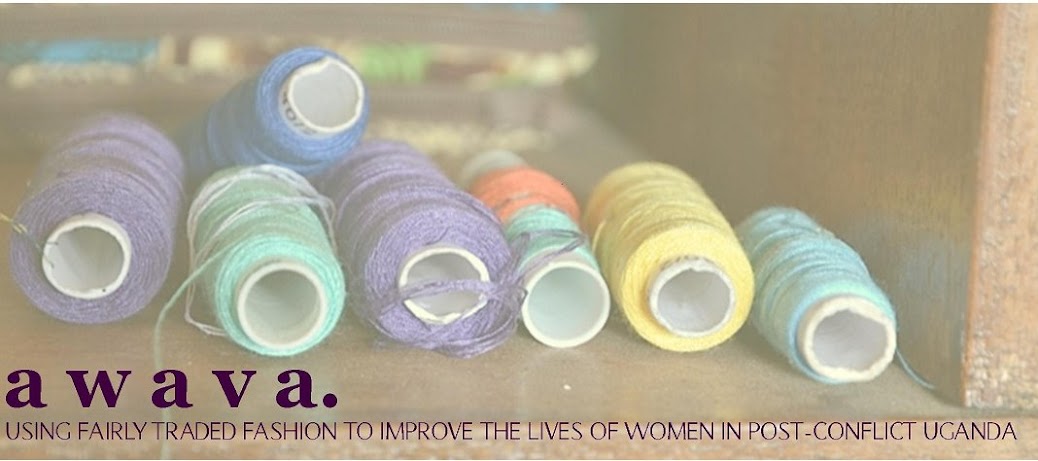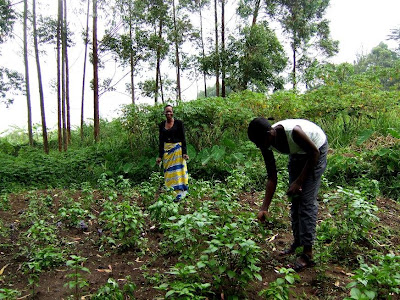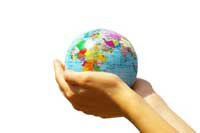by Kate von Achen
Recycling and reusing are practices which have been instilled in me since birth, really. My mother is an environmentalist, used to be one of “Nader’s Raiders”. I have frightening memories of our electric trash compacter. As a kid I thought it was a monster. Once full, one of my parents would push the button and the most awful sounds of crushing glass and metal would come out of that pea green iron beast. I have fond memories of walking around the countryside in Kansas, where I grew up, with my mother and sister picking up trash and singing Beatles songs.
Recycling in the United States is so easy. In Lawrence, KS there are myriad drop off points for newspapers, cardboard, cans and Wal-Mart is doing its part by providing the largest recycling center around, taking anything imaginable. In Brooklyn, recycling is basically mandatory and they pick your recyclable items up along with your trash. Where those items end up, well, that’s up for debate. Michael Moore asserts that they end up in a landfill in India while others believe such things truly are recycled and turned into new post-consumer waste products. Bottom line, recycling makes us consumers, obsessed with packaging, feel better.
When I moved to Uganda in 2007 I found myself seriously discouraged by the amount of trash littering the entire country. It broke my heart to throw out water bottle after water bottle, newspaper after newspaper, can after can, until one day I realized, hey! You can recycle in Uganda. In fact, the recycling and reuse of products in Uganda could quite possibly have a deeper and more sustainable impact than our recycling in the US!
There are various things I have found that can be recycled and reused and they often provide an income, be it small, for the local population as well!
We all know that glass bottles for beer and sodas are reused. You pay a deposit on the bottle and when you return them, you receive your deposit. This is great! Those shillings really do add up! If you don’t care about those shillings, place the empty glass bottles out separately from the rest of your rubbish and someone who could likely use the money will return them for some cash.
Plastic water bottles of all sizes are reused here. In the trading centers and taxi parks you’ll notice people selling milk and juice in old water bottles. They get used again, washed out, and refilled with beverages and sold. The larger 5L bottles are also used to keep the larger stocks of liquids in as well as used for jerry cans. Brilliant!
Aluminum cans are also recycled. Go to Owino market in Old Kampala and you see people melting down the aluminum to make hangers, jewelry and whatever else they can think of and selling them from market stalls!
Cardboard boxes of all sizes sell in the market. When I ship things to the US, I often pass by Owino to purchase a broken down cardboard box. This helps ensure the box is being reused while also creating livelihood for the entrepreneur selling more of our rubbish.
For the above items I simply rinse containers and put them in a separate bag from the rest of my rubbish. Instead of throwing everything into the “dumpster” near my flat, I set those items to the side so people can just grab them without riffling through the garbage for those hidden treasures we call rubbish.
Recycled paper products are found all over Uganda. Keep a bin with your old paper scraps in it and donate it to Papula Paper via
Uganda Craft (on Bombo Road near Bat Valley—just down from City Oil) or to
Paper Craft.
Also, if you drink ½ as much coffee as I do, it would be worth it to keep a bin for coffee grounds. If you have a garden or potted plants, or know someone with such things, coffee grounds provide wonderful nutrients to the soil (though Uganda’s soil is already stellar) and helps keep ants and other pests away. Click
here for more information!
Also, if you’re interested in using grounds in your garden or compost but don’t drink much coffee, please email me at katevonachen@gmail.com and perhaps we can work out a deal with some of the Kampala coffee shops such as Good African Coffee, 1000 Cups, Bancafé or Java’s!
Food waste can also be composted. Now, composting takes a tad more effort than the other Earth-friendly activities listed, but it is wonderful again for garden mulch. For more information on successful composting, please visit
Composting 101.
So for those of you (which admittedly should be all of you) who have been aching for ways to cut down on the rubbish which seems to consume this astonishingly gorgeous country, please take head of some of my suggestions above, and by all means, if you have others please share! If you have been living in or visiting Uganda for long enough, you see firsthand the destruction that global warming is causing. While heavily industrialized countries are “more to blame” than less developed countries, the people of developing countries are often the most profoundly affected. That said, everyone, regardless of geographical location or economic status can do their part to halt or even reverse the destruction to our amazing planet at little or no effort.



